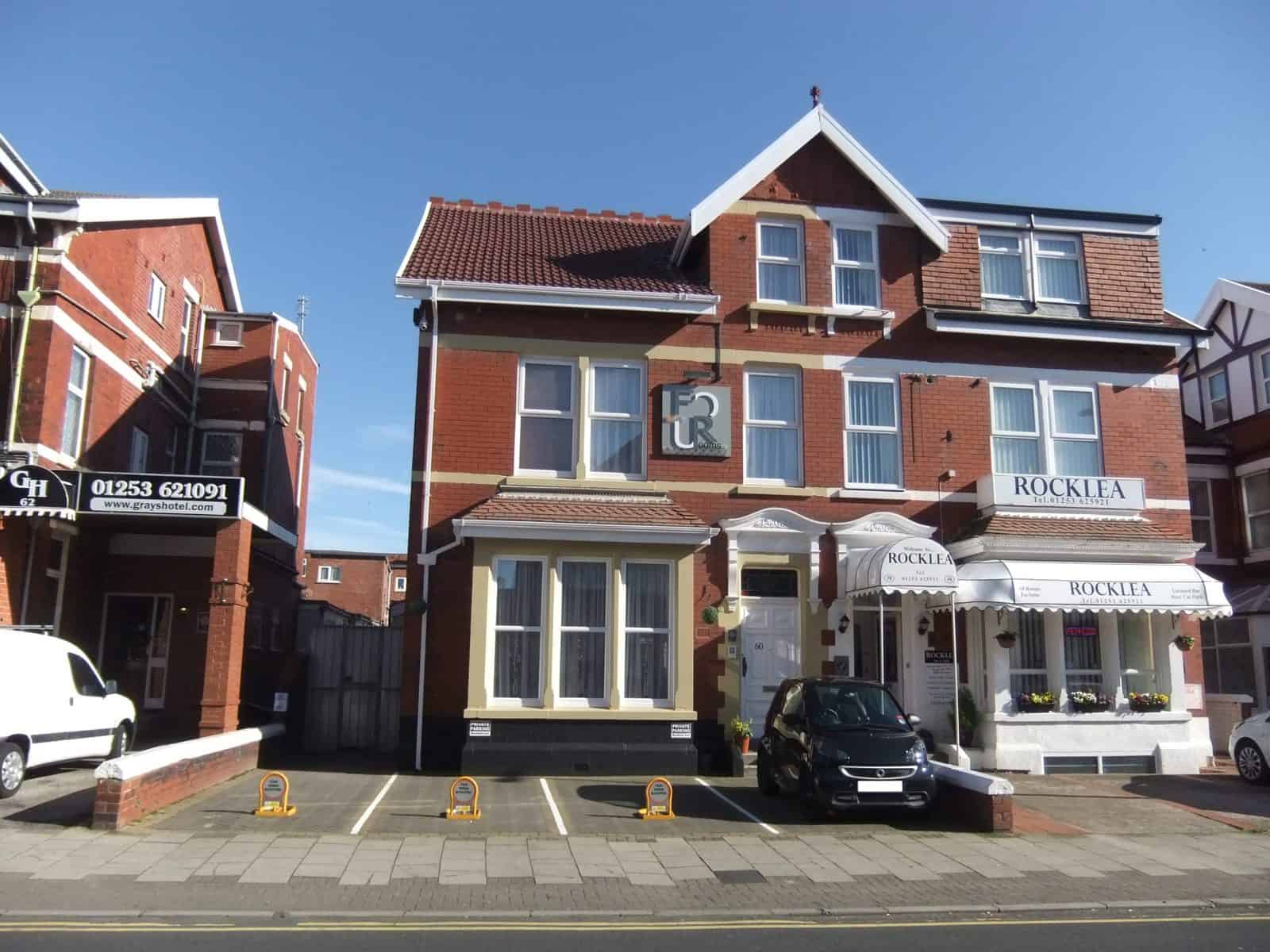
Despite Brexit
Last month the news emerged that the rate of UK hotels falling into insolvency was in fact falling at a time when Remain doom-mongers had been suggesting the entire market was imploding.
Hotel insolvencies have fallen by 18% since the Brexit vote last year according to top 10 UK accountancy firm Moore Stephens. Partner and head of hotels Vincent Wood and head of restructuring and insolvency Jeremy Willmont produced the analysis of the number of hotels entering insolvency, revealing that hotel insolvency numbers fell by 18% this year. However, for this data to be meaningful it would be necessary to compare it with this point in the recessionary cycle in previous years.
Even so, such a comparison would still be potentially meaningless as this is a very different world we live in from any previous recession and growth cycles, according to Wood, who tells Luxury Bed & Breakfast: “I don’t think it would make any sort of meaningful sense to try and compare what is happening now with previous inter-recession cycles. We haven’t made such a comparison and I don’t think if anyone did that they would get anything that is useful.”
The main factors influencing the decline in insolvency levels in the hotel sector are the weak pound and very strong asset values, he says. “These are very good at making the numbers seem positive now, but both are cyclical factors. If you look at the long-term historic trends, you would think there would be a correction both to the currency and the asset value at some point sooner or later. Those two factors are greater causes of hospitality business failure than recession. The currency situation has been driven at least to some extent by Brexit and asset values down to the fact that the UK is a politically stable place in which to invest in property.”
Willmont adds: “We are certainly seeing there are high asset values and as regards the issues of serviceability of debt there are certainly guest houses and hotels that can raise a lot of money, but the question is long term they will be able to service the associated debts or financial commitments.
Rock bottom interest rates
“There has never been an inter-recession period when interest rates have been so low, for example. If you can secure significant amounts of financing on the back of your B&B asset then that is great in terms of injecting cash into the business in the short term, but it doesn’t particularly influence profitability in the longer run. Your ability to service that financial commitment is the challenge.”
When cash is freely available people tend to overstretch themselves, warns Wood. “A guest house or hotel that has a great value may just lead to the temptation to do just that and overstretch themselves, which is fine now, but if we are looking at headwinds such as staffing levels driving up cost combined with a change in high asset value and low currency, both of which need a correction at some point,” he says.
There is a note of caution to be sounded, according to Willmont. “Is it a bubble set to burst? You only really know it’s a bubble once it’s burst, but there are a lot of the features that might determine that it is actually a bubble.”
Many bed & breakfast operations and independent hotels are family run and don’t require staff, but for many others staffing is a necessity to run the business effectively at the luxury end of the market. Wood says: “If you talk to any hotel and ask what their biggest problem is today, they will talk about staff recruitment, staff retention, competition for staff and the demands for staff, and the low currency is not helping as many non-UK EU citizens send a lot of their money home and therefore that economic model ceases to work for them. This is another driver pushing people outside the UK,” he says.
Although the ONS indicates that the level of EU citizens employed in the UK is continuing to rise, he is pessimistic and suggests it is wise to consider a worst-case scenario. “If the headwinds aren’t as strong then that’s fine, but EU nationals are returning home,” he insists.
He explains this by suggesting that a breakdown in the number of EU nationals working in the UK may reveal that fewer of them are actually working in the hospitality sector.
Preventative measures
In the current economic environment, what action should larger luxury bed & breakfast operations take to stave off receivership or liquidation? Wood advises hotels should avoid complacency about OTAs.
“If you ask what mistakes hotels and guesthouses make, it is a focus on top line rather than on costs,” he says. “Top line focus is fine, but if costs are outstripping that then you are in a bad place. It’s all very well getting a lot of business from OTAs, but at the end of the day that takes a huge chunk out of your bottom line.
“If you did start moving into a more challenging environment, then obviously you start to wonder whether OTAs would in fact start to think about reducing their commission because clearly it is killing the golden goose if they don’t,” he says.
Meanwhile trends in the hotel market are emerging with regards to the saleability of insolvent independent hotels. Willmont says: “There is a lot of demand there, and a willingness to meet that demand, but at the same time there are a lot of canny buyers out there as well, with lots of people looking for a bargain.
“If a hotel has not been trading particularly well then that will provide a great opportunity for somebody to come in and manage the turnaround, but it doesn’t drive up the price of the property before the turnaround issue is sorted out. Fundamental is both the demand for the type of hotel in that location and the guest experience. The good turnaround people are looking at those aspects, asking what level of demand exists in the location, how they can improve the guest experience and then enhance the value there.”
Wood says: “My sense is that hotels are being sold between experienced UK operators, but where you are seeing an increase in value is when they are sold to overseas investors from southeastern Asia. They want to acquire the asset and they are prepared to pay for it. With that sort of attitude, we are seeing properties exchanging hands for a huge amount of money, which of course will drive up value.”
From the point of view of someone who might be looking to invest in hotel property, they need the vendor to be of a size that will produce sensible financial information and look like a reasonably sized business, he says, suggesting there is less scope for the luxury bed & breakfast market to appeal to such buyers. “It’s not practical for a significant fund to go looking at small privately-owned businesses,” he says.
Independent review
From an insolvency perspective gone are the days when banks would pull the rug from under a business. Willmont says: “We all know what went on in the past, but the current attitude of bankers is very different. They do have an obligation to their shareholders to manage their business and if they are concerned about how business is performing they will encourage the owners to seek professional advice. They may require as a condition of continued funding that there is an independent review carried out. If they are nervous they will not continue to fund the business, and you get to the point where the owners want more money and the bank is nervous and would rather withdraw and in that situation, it forces a situation upon the owners where they must consider insolvency. Usually at that point the owners have creditors building up and they are getting all sorts of pressure there.”
In those situations what is very important for the owners is not to leave it too late, he suggests, and he advises any luxury B&B owner in such a position to have a frank conversation with the bank early. “It’s always better to be honest with your bank and explore the options to see if there really is a way out. Usually if you move early you can find a way of resolving things. If you leave it too late there might not be a way out and that’s when you end up where insolvency is the only option,” he concludes.



